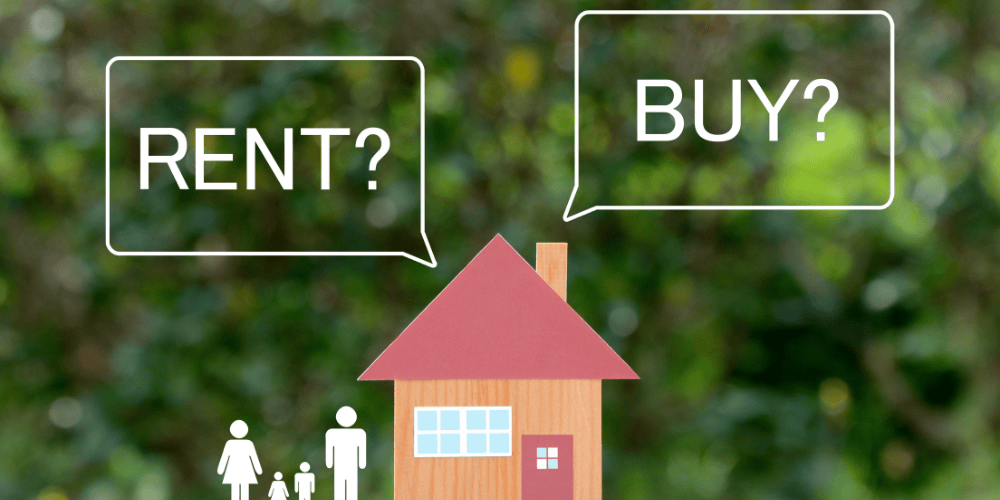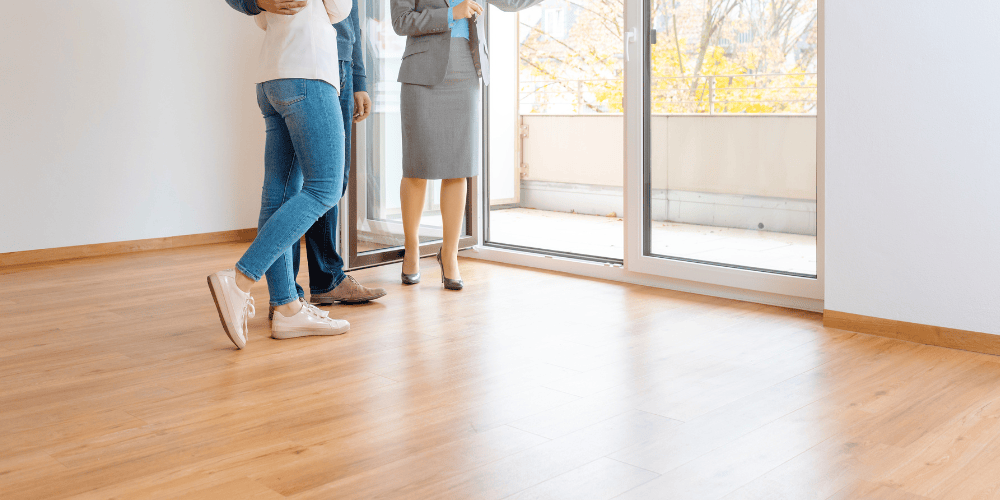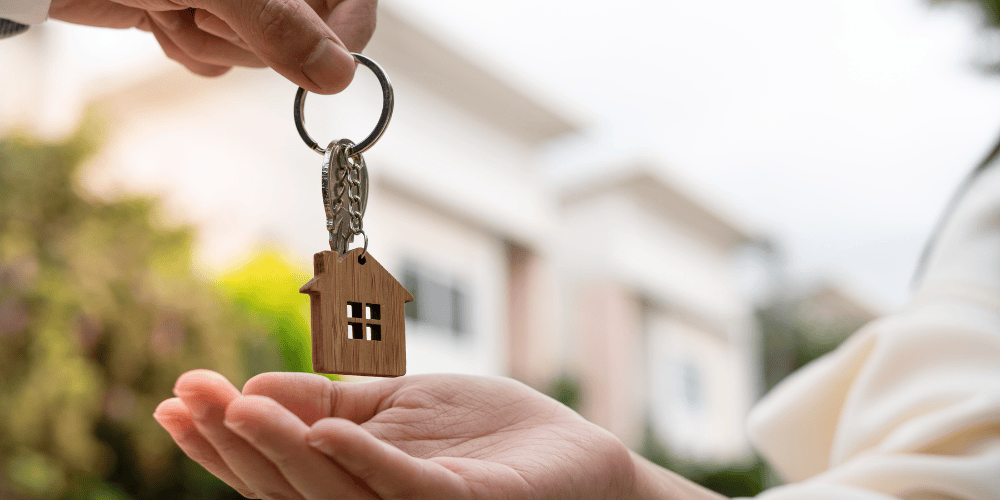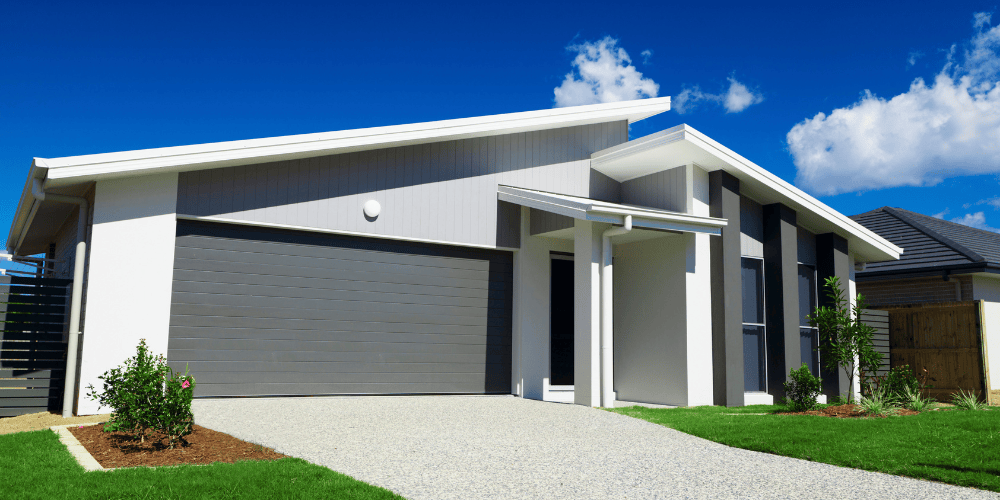Renting vs. buying isn’t a quiet living room conversation for Australian’s – it’s a topic that emboldens lively debate. In fact, for many of us, the debate between renting vs. buying in Australia is conversation that spills out into pubs, town halls, and social media – with opinions just as strong as the division that the topic creates.
With home loan interest rates in Australia hovering around the 5-7% mark through Q1 of 2023, the Australian rental market is experiencing unprecedented demand and competition. Vacancy rates have slipped to their lowest point on record and rental prices continue to surge across the country with PropTrack showing that the average rental price increased by 6.7% over the last 12-months.
Ongoing economic pressures and ongoing fluctuations to the housing market means that many would-be-buyers are now revaluating the merits of renting vs. buying in 2023.
To make things simple, we’ve compiled a list of the advantages and drawbacks of each, as well as important factors that investors, renters, and first-time home buyers should take into consideration.
Table of Contents
- Advantages of Renting
- Disadvantages of Renting
- Advantages of Buying
- Disadvantages of Buying
Advantages of Renting in 2023
Even in the midst the most competitive rental market in Australia’s history, there are still a number of advantages that come with renting – here’s just a few:
Affordability
The barrier to entry for renting a property is (obviously) much lower. You don’t need a deposit and the monthly repayments can sometimes be lower than a mortgage.
For young professionals that are looking to live close to work, amenities, or in some of the most sought-after areas in the country, rent is often the only option. Of course, it’s the same desire to live by the beach, in the city, or in other popular metro locations that continues to drive rental competition and feed into the rising cost of rent.
Flexibility
Most rental periods are 12-months, which means that if you don’t like where you’re living, your circumstances change, or you want to upsize/downsize – then you have the option to move on after your rental period ends.
For young professionals, this means that you can try living in different areas until you find the one that truly suits you. Once you’re set on an area and you know what size dwelling you’re going to need, you can then commit to a long term living arrangement by buying in that area.
Maintenance
The ongoing cost of home ownership means costly maintenance, repairs, council rates, and even insurance bills.
One of the biggest allures of the rental market is the limited liability places on renters. If the walls fall in or the roof comes down, then you’re not on the hook for repairs. As a tenant, your landlord does the job of liaising with the homeowner to arrange repairs and cover these ongoing maintenance expenses.
No Mortgage Rates Stress
For homeowners, a Reserve Bank (RBA) rate rise can spell the difference between a European vacation and an interstate holiday. Ongoing rate rises are putting mortgage stress on homeowners and ballooning expected mortgage repayments to new levels in 2023.
Renters, on the other hand, are immune to RBA stress in the knowledge that a landlord can only increase rent once in a 12-month period.
Other Investment Opportunities
As a renter, you can save money that can be invested in. other ways such as the stock market, a business, or even your own education. Added liquidity is a big appeal to renters – particularly when returns from other markets outweigh returns from real estate investments.
Disadvantages of Renting
Rent Money is Dead Money
It’s the age-old adage that has been uttered in just about every pub in Australia at some point, however, there is an element of truth to it.
When you pay rent, you are effectively covering someone else’s mortgage repayment expenses. Granted, the rent that you pay may not be enough to cover the entire mortgage repayment, however, there is an element of truth to the saying.
Your rental repayments are paying off someone’s mortgage that they own. At the end of your tenancy, they may be 1,2, 3, or even 10-years closes to paying off their mortgage while you are accumulating no assets yourself.
Limited Control
Ready to paint the walls, dig up the garden, or just add a bit of creative flair to your place? Well, if you’re a renter – then there is going to be some issues.
You see, when you rent a property, you have limited control over the space and what you can do in that space. You cannot make significant changes without the approval of the landlord, and you may also be slapped with additional restrictions around pets and other freedoms that owners don’t need to take into consideration.
No Tax Benefits
As a renter, you cannot take advantage of the tax benefits that come from owning a property. Things like mortgage interest deductions and property tax deductions are offered to the owner of the property – not the tenant.
Uncertainty
For anyone that has experienced a rental rate increase or had their rental period cut short by a property sale, this is a big one. When you rent a property, there is a level of uncertainty around how long you will be able to live at that place, lease renewal terms, and even eviction notices.
Renting uncertainty can create a significant stress point for renters and can make it difficult to plan for the future.
Rent Never Ends
Rent never stops, no matter how long you have lived at a property. Unlike a home loan which has an end point when the property is eventually paid off, rent is an ongoing expense that needs to be factored into your budget indefinitely.
Advantages of Buying
Property ownership is, by definition, the Australian dream. For many of us, buying a property is a monumental occasion that takes years of saving and sacrifice. Here are some of the advantages of buying a property in Australia:
Appreciating Asset
In almost all cases, property is an appreciating asset that increases in value over time. Property values increase relative to inflation, economic growth, and increasing demand for housing which means that you can expect a sizeable increase in the value of your property over time.
Passive Income
If you choose to buy to rent, then your property can generate income though rent which can also increase over time due to inflation and market conditions.
Depending on where and when you buy, you may receive more in rental income from the tenant then what you pay on the likes of interest, loan repayments, maintenance, and management fees – otherwise known as positive gearing.
There is An End Date
Rent never sleeps, however, when you buy a property through mortgage you will be locked into repayments for a period of 10, 15, 20, or 25 years. Once you reach the end of your mortgage, you then own the property outright which means that you can enjoy your later, lower earning years in life without rental stress.
Meeting your monthly mortgage repayments is one of the best ways to grow you credit score. Conversely, while renters must meet the same repayment obligations, these payments do not contribute towards their overall credit score.
Creative Freedom
As a homeowner, you can paint, renovate, and update the look of your home to your heart’s content – just as long as the local council is on board with it. Homeowners also have the freedom to get pets and enjoy their space without the same restrictions as renters.
Disadvantages of Buying in 2023
High Upfront Costs
Buying a home in Australia requires a significant upfront cost which includes an initial deposit (10-20% of the overall purchase price of the home), stamp duty, legal fees, and other miscellaneous expenses which add up over the course of buying a property.
For many, it can take years of savings and sacrifices to pull together the requisite funds to buy a home in Australia – particularly in competitive markets.
Repairs & Maintenance
As a homeowners, when the roof falls in or you have plumbing, electrical or other unexpected maintenance and repairs – the onus is on you to fix them. Repairs and property maintenance can be time consuming and expensive, which is why it’s important to have a property inspected for potential vulnerabilities before you buy.
Less Flexibility
As a homeowner, you are not afforded the same level of flexibility as renters who are free to pack up and relocate at the end of their lease period. For most, buying a home is a 15-30-year financial commitment which can only be broken when you sell or move on from the property.
With that said, if you do need to relocate to a different area for work or other reasons, then you can always put your home on the rental market and rent somewhere else in the meantime.
Interest Rate Fluctuations
When it comes to buying a home in Australia, interest rate fluctuations are an important consideration. In 2022 alone, the cash rate set by the RBA rose by 3.00% per annum which drives up the cost of home loan interest rates and repayments across the board. While the current interest rates are a far cry from the 1990 peak of 17.50%, they are also much higher than rates between 2020-21.
Renting vs. Buying in 2023 – Which is Right for You?
The decision to rent or buy in 2023 comes down to your individual goals, financial position, and what you feel comfortable on doing in the current market. If you’re tossing up between renting and buying property in Australia, here are some questions that you need to ask yourself:
- What are my long- and short-term goals?
- Where do I want to live and can I rent and buy in that same location?
- Am I eligible for any concessions when I am buying?
- How much can I afford to borrow in the current market?
- How much do I need to spend to maintain or fix the property that I purchase?
- Am I ready to commit to one location for the next 15-30 years?
Ultimately, the decision to rent or buy comes down to your personal circumstances, your long-term plans, and market conditions. If you’re not sure what’s right for you, talking to an expert is a good starting point and can help you to understand your buying power and options in the current market.




